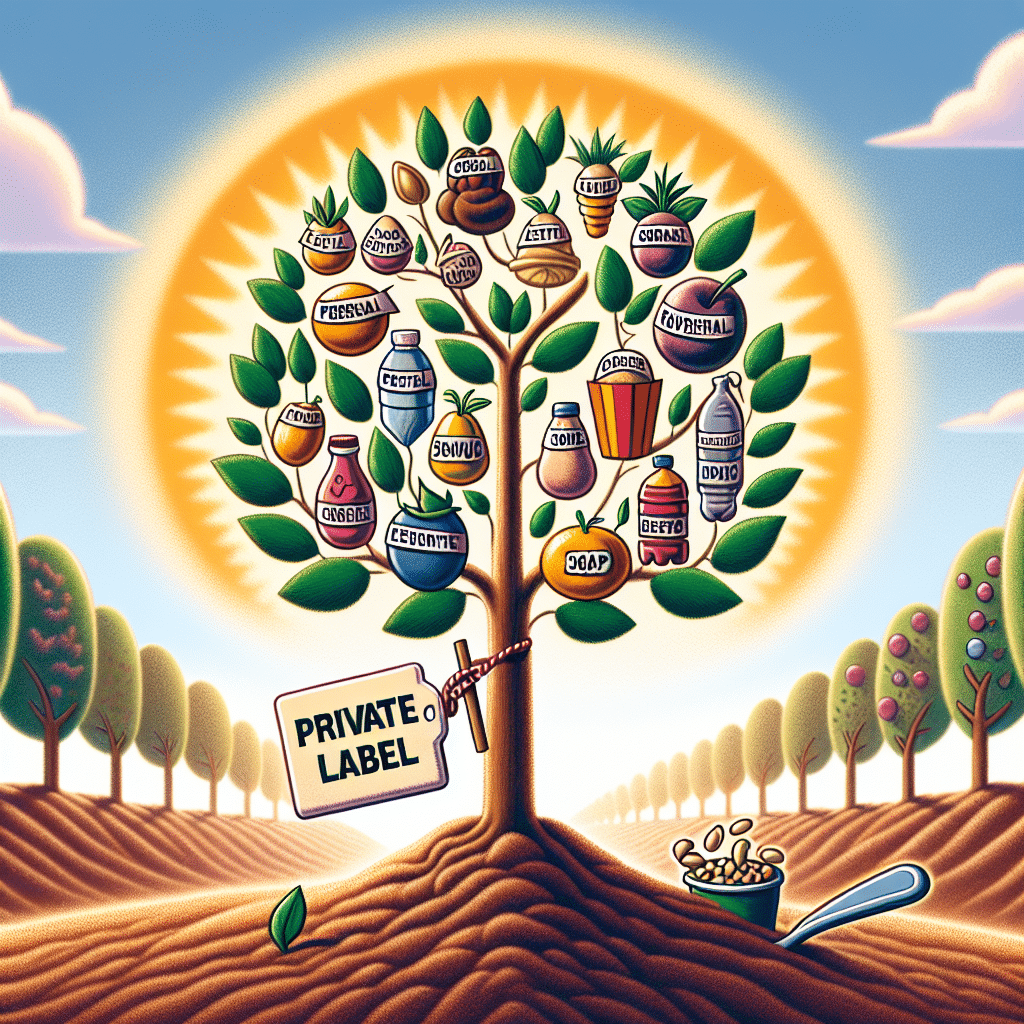The Triumph And Transformation Of Private Label Brands
-
Table of Contents
- Private Label Brands: The Rise to Retail Dominance
- The Evolution of Private Label Brands
- Quality and Value: The New Standard
- Innovation and Differentiation
- Strategic Positioning and Marketing
- Private Label Brands by the Numbers
- Consumer Perception and Loyalty
- Challenges and Opportunities Ahead
- Conclusion: The Future of Private Label Brands
- ETprotein: Your Partner for High-Quality Protein Products
Private Label Brands: The Rise to Retail Dominance

Once considered a less desirable alternative to national brands, private label brands have undergone a remarkable transformation. Today, they stand tall as a symbol of quality, innovation, and value, challenging the dominance of established manufacturers. This article delves into the triumphs and transformations that have propelled private label brands to new heights in the retail industry.
The Evolution of Private Label Brands
Private label brands, also known as store brands or own brands, are products that are manufactured by one company but sold under another company’s brand, typically a retailer’s brand. Historically, these brands were perceived as low-cost, low-quality alternatives to national brands. However, over the past few decades, this perception has shifted dramatically.
Quality and Value: The New Standard
One of the most significant changes in the private label landscape is the improvement in quality. Retailers have invested heavily in their private label products, ensuring that they meet or even exceed the quality of national brands. This commitment to quality has been a game-changer, earning the trust and loyalty of consumers.
- Many private label brands now boast premium ingredients and sophisticated packaging, rivaling their branded counterparts.
- Consumer surveys have shown that the majority of shoppers believe the quality of private label brands is as good as national brands, with some categories perceived to be better.
Innovation and Differentiation
Private label brands have also become hotbeds for innovation. Retailers are not just imitating national brands; they are creating unique products that fill gaps in the market.
- From organic and non-GMO offerings to ethnic and gourmet foods, private label brands are leading the way in product innovation.
- Exclusive flavors, formulations, and packaging designs are helping these brands stand out on the shelves.
Strategic Positioning and Marketing
Retailers have become adept at marketing their private label brands. Through strategic shelf placement, in-store promotions, and loyalty programs, they have made their brands highly visible and attractive to consumers.
- Many retailers now position their private label products as a smart, savvy choice rather than just a cheaper option.
- Some stores have even created sub-brands under their private label umbrella to target specific market segments, such as premium, value, or health-conscious consumers.
Private Label Brands by the Numbers
Statistics paint a clear picture of the success of private label brands:
- According to a report by Nielsen, private label sales have outpaced national brands in many categories.
- In some European countries, private label market share exceeds 40%, a testament to their widespread acceptance.
- In the United States, private label brands account for approximately one-quarter of all unit sales in supermarkets.
Consumer Perception and Loyalty
The transformation of private label brands is also reflected in consumer behavior. Shoppers are not just trying these products; they are sticking with them.
- A survey by the Private Label Manufacturers Association (PLMA) revealed that once consumers switch to a private label brand, 70% will buy it again.
- Private label loyalty is particularly strong among millennials and Gen Z consumers, who prioritize value and are less influenced by brand names.
Challenges and Opportunities Ahead
Despite their success, private label brands face challenges. They must continue to innovate and differentiate themselves in a crowded market. Additionally, they need to adapt to the rise of e-commerce and direct-to-consumer models.
- Private label brands must leverage data analytics to understand consumer preferences and tailor their offerings accordingly.
- Investing in online branding and marketing will be crucial as shopping habits shift increasingly towards digital platforms.
Conclusion: The Future of Private Label Brands
The triumph of private label brands is not a fleeting trend but a fundamental shift in the retail landscape. By offering high-quality, innovative products at competitive prices, these brands have earned a permanent place in consumers’ hearts and shopping carts. As they continue to evolve and adapt to market changes, private label brands are poised for even greater success in the years to come.
ETprotein: Your Partner for High-Quality Protein Products
In line with the transformation of private label brands, ETprotein stands out as a leading supplier of premium protein products. Their extensive range of organic and non-GMO proteins, including rice, pea, and various seed proteins, aligns perfectly with the health-conscious and quality-driven demands of today’s consumers.
ETprotein’s commitment to purity, with L-(+)-Ergothioneine purity over 98%, ensures that private label brands can confidently incorporate these ingredients into their product lines. Whether you’re looking to develop sports nutrition, weight management, or general wellness products, ETprotein provides the high-quality protein solutions you need to succeed in the competitive private label market.
About ETprotein:
ETprotein, a reputable protein and L-(+)-Ergothioneine (EGT) Chinese factory manufacturer and supplier, is renowned for producing, stocking, exporting, and delivering the highest quality organic bulk vegan proteins and L-(+)-Ergothioneine. They include Organic rice protein, clear rice protein, pea protein, clear pea protein, watermelon seed protein, pumpkin seed protein, sunflower seed protein, mung bean protein, peanut protein, and L-(+)-Ergothioneine EGT Pharmaceutical grade, L-(+)-Ergothioneine EGT food grade, L-(+)-Ergothioneine EGT cosmetic grade, L-(+)-Ergothioneine EGT reference grade and L-(+)-Ergothioneine EGT standard. Their offerings, characterized by a neutral taste, non-GMO, allergen-free attributes, with L-(+)-Ergothioneine purity over 98%, 99%, cater to a diverse range of industries. They serve nutraceutical, pharmaceutical, cosmeceutical, veterinary, as well as food and beverage finished product distributors, traders, and manufacturers across Europe, USA, Canada, Australia, Thailand, Japan, Korea, Brazil, and Chile, among others.
ETprotein specialization includes exporting and delivering tailor-made protein powder and finished nutritional supplements. Their extensive product range covers sectors like Food and Beverage, Sports Nutrition, Weight Management, Dietary Supplements, Health and Wellness Products, and Infant Formula, ensuring comprehensive solutions to meet all your protein needs.
As a trusted company by leading global food and beverage brands and Fortune 500 companies, ETprotein reinforces China’s reputation in the global arena. For more information or to sample their products, please contact them and email sales(at)ETprotein.com today.














